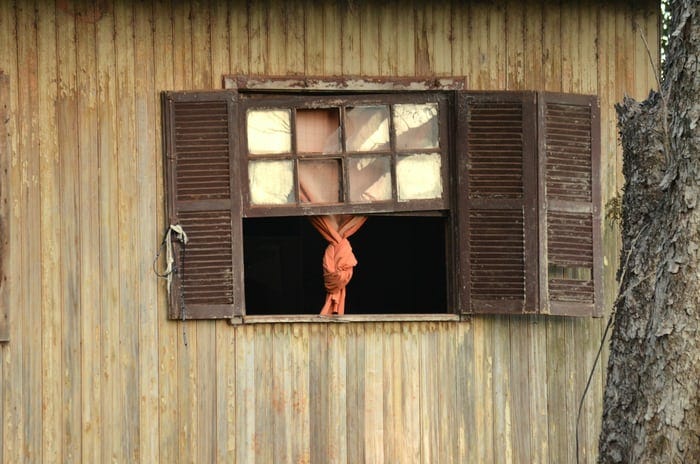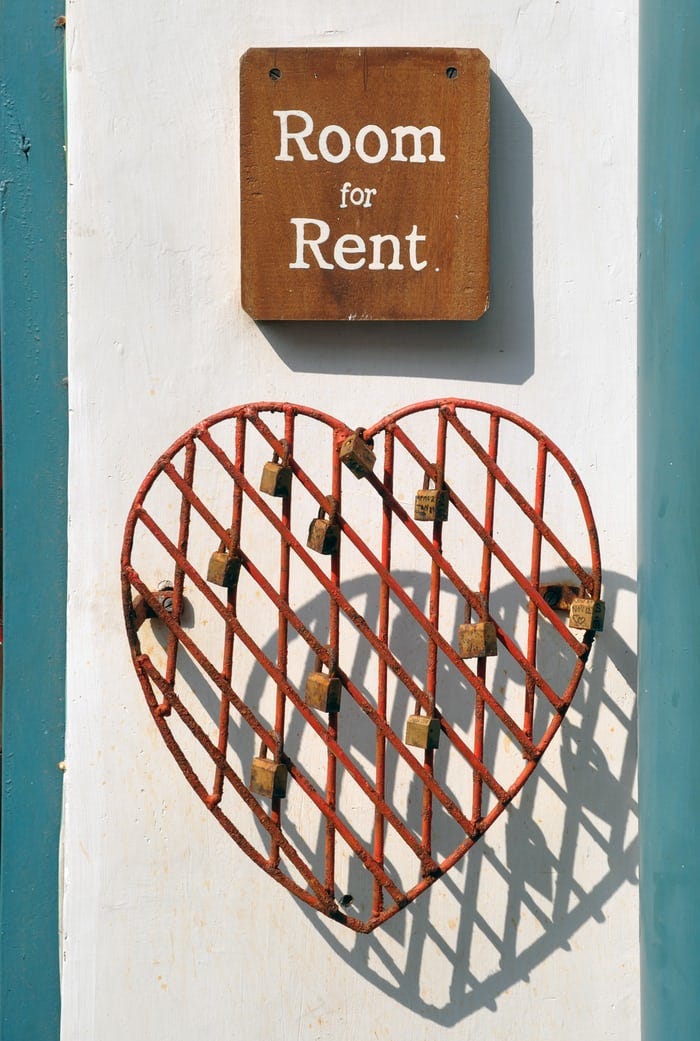I can’t believe it but it is almost the end of the fall semester at NYU.
Typically when time flies by that means everything was joyous and splendid but with Zoom fatigue and massive burnout each night I lay my head on the pillow, I wouldn’t say it’s been honkey dorey this whole time.
Yet, what has been exciting is all the knowledge that I’ve acquired because I’m finally at the age in my college journey as a sophomore that was eligible this semester to design my own class! This took a lot of responsibility, planning, logistics, and due diligence to set up since I’m not only the teacher assigning myself work, but creating the syllabus and fake tests to follow are logistics that I’ve never dealt with before.
This semester I made and set on completing the class: The Home Hassle.
I wanted to give it a nice spin since most classes are called COURSE 67BEPADI9 or a fascinating literature class I’m taking called PUDAMDN76E.
Don’t worry, we aren’t going through the syllabi or the research I went through to learn more than I would’ve ever in a traditional course. I did all that work for you and now all you have to do is scroll your eyes down the page and apply some of it in your life unless you don’t care about saving money and making good decisions.
Especially in college where grades are heavily scrutinized and competition is too real, I try to make it enjoyable as possible.
If I had an opportunity to make my own class and learn something useful, I do more work than is required but I have more fulfillment and skills afterward. Now that is the best investment.
As a disclaimer, by no means is this information you’ve never heard of before or cannot get elsewhere. Over the past few months I’ve compiled a few thoughts, questions, hypotheses about renting versus buying that aren’t always common or considered.

There are several problems with housing:
1) It is the largest expense of our lifetime
2) We are very undecided and there will always be regrets no matter if we snagged our top property
3) Awakard about living alone and waiting until we get married to appeal to social norms
4) Not sure where life will take us in a few years or if the job is stable
5) Realizing that living with mom and pap is cheaper, better, easier for them and you and who no one cares in the long run
When you think of growing up, the first things that come to mind when you become an adult are purchasing a home, having a baby, and living with a partner, or two (don’t ask, I’ve seen people do it).
But why does that have to be so?
Even though this is once again something I haven’t learned in school but rather from my most trusted source my mother and the internet, the housing plan must be individualized or it just won’t work. Buying anything more than a Starbucks latte requires thought, even though a $5 cappuccino should require deep thinking as well but a home, it is only for the serious buyers or renters with patience and due diligence.
Don’t worry, you don’t need to make house hunting another full-time job on top of your regular job, but with the number of property transactions that go on per year in the states, it is quite appalling how unprepared we are as homebuyers.
There are always pros and cons to everything, but especially with renting and purchasing a home, it isn’t always both.

A Decision really comes down to a few main things that you can control:
1) Where you want to be for the next few years
2) What your financial situation is: in debt, student, working 24/7 no free time
3) Life status-married, single, baby, boyfriend
Besides this, you cannot control anything else like your age and your location, most of the time since if you work there, you stay there.
Since we need a place to live, you need to decide upon one and the ultimate deciding factor, as with everything in life, whether you like it or not, is money and your financial situation.
Numbers don’t lie but we do.
Don’t be ashamed if you are still dealing with student loans or late payments from that night out in college that trashed your credit score till today.
Make sure you pay those back and stay diligent, don’t let others get in your way.
Then you can enjoy your life because the time to pay back debt is serious and you have to sacrifice a bit since you made poor decisions as a consequence in your past.
Only 1/3rd, 37% of millennials between the ages of 25 to 34 own homes, and 63% reportedly regret their home purchase.
This is because one thing wasn’t achieved: Not preparing or research.
There is a lot that goes into the payment, not just the purchase price. This includes HOA, maintenance, broker fees, selling costs, capital gains tax, etc. that we certainly haven’t learned in college and is all over the internet, so we don’t even bother looking into it!
The internet doesn’t make it easier to comprehend. More information = more confusion.
It is so easy to get scammed or pay overprice for a broker these days because they take advantage of you.
They know you haven’t researched the fees for a transaction and renter’s insurance jargon, so they scam you.
Not in a pirating, hijacking way but in a hidden, calm way that happens over and over.

The top reason 63% of people are more skeptical than ever and regretting purchasing their home:
1) Hidden costs and maintenance
2) Always believe the grass is greener on the other side
Yes, there will always be something better on the market but how long are you going to wait?
There is no secret sauce to getting the best deal of the century.
Real estate works fast but that doesn’t mean you should. Take your time understanding what you need and can afford. Personal finance experts recommend spending no more than 30% of your gross income on housing so start there.
Let’s run the numbers and get into the meaty part of the conversation.
So is it better to Rent or Buy?
Short answer, if you say yes to at least 2,then yes:
1) A hefty down payment
2) House in pretty decent demand area and likely to appreciate
3) Close to work and actually a good location? (believe it or not, this is the least considered thing)
4) Plan to use and live in the property for at least 5 years
Congratulations!
You are in the strongly considered category for purchasing a home.

If not, these are the checklist items you need to look over that may make you the perfect contender for renting:
1) Possibly young, but not always.
2) Not knowing if you should settle down in this area or move around still after graduation or for another job replacement
3) The neighborhood is too expensive to buy but renting is preferred and popular
4) Tired of mom and pap, want own space or with roommates
5) Willing to share with people
6) Don’t mind not owning a place to fit your style, doing renovations, and following guidelines dependant on the landowner
As much as age doesn’t matter in the housing search, it is up to a certain point. If you are a college student, it is most likely not a smart idea to purchase a home, even if you go to NYU, inherited your parent’s wealth from a profitable Chinese startup, and plan on getting a job in the city.
Especially when we are teens our preferences change and we are still exploring.
Don’t jump the gun becuase there are a ton of fees in the process of purchasing a home and it isn’t an investment unless you research and wait it out.
Along with the top-grossing returns for investments such as index funds, ETFs, and mutual funds, real estate or REITs seem to be a popular pick these days because they accumulate a monthly recurrent passive income to pay down your mortgage and add an extra side income to your portfolio along with being stable, not volatile returns as opposed to your picks in the stock market.
Yet, what goes into those stable real estate returns needs to be a stable and consistent, patient mindset. When you purchase a property, it isn’t as simple as finding a tenant and leasing it out to them.
First off, most Americans cannot even afford their primary residence, so jumping the gun to put a downpayment and taking out a 30 year fixed mortgage will not work in your favor.
You would be better off investing all of that into Tesla stock.

These are some reasons why owning a rental property is a bad investment:
1) Likely won’t generate the income you expect and have to put in a lot of money upfront such as renovation, broker fees, and rental insurance cash on the side in case the tenant trashes the place
2) Lack of diversification-It is fine to purchase a property with debt becuase it is good debt but real estate is illiquid so it is hard to convert the money into cash for an emergency quick
3) Takes time to sell and capital gains tax can accumulate quick
So how much does it really cost to own a rental property?
Being a landlord can be tough and pricey. Returns might not even show up after a year or two of renovations, broker fees and wasted time.
Depending on if your broker is trustworthy and went through background checks, credit history, and their previous housing situation for the tenants, it can be a make or break situation if you spend the next how many years it may be dealing with inconsistent, lazy, default paying tenants.
It’s just the college algorithm with roommates. You are being paired with a stranger to take care of your property and pay on time.
If not, unless you want to file a suit and pay for a lawyer who will sometimes charge upwards of the home’s value, it won’t be worth it.
During COVID, evictions are banned in NYC until sometime next year. In that case, some landlords are frustrated they aren’t receiving their monthly payments due to the pandemic. This is a game of luck and how much research and diligence you put in.
You are centrally able to control it just like grades.
How much work you put in, you receive back as a return and piece of mind.

Best Cities
According to Interest.com, the best cities to buy rental properties during the pandemic are swaying out of the traditional high populated, innvoative tax burden cities into the suburbs where people who have the luxury to work from home and can relax in the privacy of their own backyard.
Adios LA and NYC.
These are the best cities to buy rental properties:
Arlington, Texas. Population growth: 0.43%
Atlanta, Georgia. Population growth: 2.42%
Jacksonville, Florida. Population growth: 3.1%
Colorado Springs, Colorado. Population growth: 4.1%
Columbus, Ohio. Population growth: 2.3%
The real costs to consider with rental properties are just beyond the broker fees and maintenance costs to purchase the property.

Additional Costs Not Always Considered:
Down Payment and Interest Rate
Rental properties require a 20% down payment and have a 0.75% higher interest rate. For 3 to 4 unit properties, a minimum of 25% down payment is requires
Property Taxes
It is easy to assume that because you are getting paid each month, every payment such as maintenance and taxes for the property are already written off, but that is certainly not the case. Especially in high tax states. Property taxes can add significantly more cost to the property.
Homeowners Insurance
Along with taxes, insurance depends on the location of the property and if your home is located in an area prone to flooding or fires, expect rates to be higher.
Maintenance
This can include everything from heat for your renter. It is best to reserve 10 to 12 months of rent per property to cover maintenance and vacancies, in case you cannot find a renter, you still have to pay these costs!
Utilities
Gas and electricity are the tenant’s responsibility, but water and cooling systems may not. Maintenance and utilities must be considered since they are big expenses that add up
The Dreaded Broker Fees
Unless you want to spend your time after work and weekends looking for tenants, doing background checks, and posting on Craig’s List you are finding renters, this can easily turn into a full-time job.
You need to decide what you value. If you want to take advantage of the opportunity cost, I suggest spending money to save time because of time=money. Yes, you need to do some research on finding a reputable brokerage firm, but compared to doing it yourself, it isn’t much work. Find local brokers in your area, and there are always ones available. Real estate agents are always behind your back looking for new people and especially during this pandemic, there is a record number of sales they are doing.
Never fear a missing broker!
Rental Payment Check
To determine if the cash flow for a rental property is going in the right direction and sustainable, use the 1% rule.
It is a formula used in the rental real estate market to determine whether a property is likely to have positive cash flow, your main reason for leasing a property.
At a minimum, 1% of the purchase price should be your returns.
For example, if a property is for sale at $500k, it should produce a rental income of $5k a month.
Purchasing a Home
Now since we’ve covered owning a rental property and the costs that are associated with renting as a landlord which mainly include renter’s insurance, utilities, and some maintenance (varies per property), now let’s get to the big decision and hopefully the investment, purchasing a home.
To live the American Dream, the stereotypical image is that you must live in a place where you have a white picket fence and mow your own lawn.
Personally, that is too much work for me, and especially since the bigger the home, the more work and either cooler or warmer it is, never in between, apartments are much more realistic for me.

Apartment VS. House
We won’t get into the different types of properties but here is a quick rundown of why my family has always lived in apartments in America, a rare thing to do:
1) More security, not fearful if windows are open at night or door not locked living on the top floor and doorman downstairs and people around for comfort
2) Deliveries are safer: doorman or inside locked space, never left outside
3) No extra costs to repair the roof or clean the gutters-not your responsibility
4) Much easier to clean and take care of since it is a smaller space. Save money and hassle finding a cleaning lady, probably can do it yourself for a few hours each month
5) You really don’t’ need much space.
Yes over 2 people, you would need 3 bedrooms but for my mother and I, a 2 bedroom apartment is perfect.
6) Less Stuff = More Savings
7) Private pool, gym, terrace, outdoor and indoor amenities not for public
Downsides to Living in an Apartment:
1) You don’t’ have your privacy with a backyard
2) Not enough space?
3) In NYC, a resident typically has to pay an extra $100 up to $2k for parking a month
4) Shared communal spaces
5) Limit kids because quiet hours
6) If an apartment has a fire or accident, it will most likely invade faster than in a separate home
7) Prefer walking outside instead of through the lobby or elevator-not a big hassle but some people are picky
Now that we’ve gotten that out of the way, let’s see if you can afford to buy a home and just remember because you can doesn’t mean you need to!
By home, I mean apartment, studio, loft, home, building, anything that you consider, livable, and a safe space to change and sleep!
Down Payment
Although you can purchase a home with a down payment as little as 3% of the purchase price, that means you must take on more debt a.k.a a mortgage you have to consistently pay off for possibly the next 30 years. It is rare that new homebuyers keep properties for over 30 years let alone, 5 years, so just remember, once you move out, your mortgage still needs to be paid down in full once you sell.
It is important you have more cash such as putting 20% down to save you money on interest and private mortgage insurance (PMI). You will also feel more financially free and not controlled by the bank since they do own it until it is paid down. If you have to dip into your investment accounts or 401k/IRA retirement accounts, that is a cry for help. IF you do withdraw then you will have to deal with fees and taxes along with removing a vital compound source of growth for the future income you must depend upon.
Emergency Savings
As I suggested on putting down at least 20% of a downpayment in cash on a home, you should always consider having at least 12–48 months of leeway expense a.k.a emergency savings on deck, especially as a homeowner. Owning a home requires a lot of work. It usually isn’t move in ready, unless you are willing to pay extra for it and you have to accept there will be a leak or break eventually!
Now 12–48 months sounds extreme.
68% of Americans can’t afford a $600 unexpected expense but no wonder they are in the trenches! Cash gets a bad wrap because it doesn’t earn you interest and depreciates a cent every day due to inflation but it is your savior. You have to compromise and it will be your backup in need. Your stocks are illiquid and won’t be there when you need it.
For maintenance and repairs alone, experts advise budgeting 1% of the home’s purchase price annually. That’s why we recommend using the calculators to give you at least an idea of what makes sense for you.
Location
Make sure you are taking into consideration the neighborhood and if it is in a somewhat of a trendy, in-demand area. You not only want a return but also make it work for you so you can explore the area, enjoy it and hopefully be closer to work. Of course, you will get a bargain in the middle of North Dakota but that is unrealistic, not fun, and the worst commute ever.
Don’t be stupidly cheap.
Background Checks
Similar to a renter, when you are looking to purchase a home, lenders look at your DTI: Debt-to-Income ratio to see if you are able to afford your monthly expenses and home.
The Calculation to Determine If You Can Afford A Place:
Divide your Gross Income/ Projected monthly housing expenses-mortgage + taxes + insurance
Most lenders are looking for a front-end DTI below 28% and a back-end below 33%. If you’re not there yet, you should wait to buy until you’re in a stronger financial position.
Similarly, credit score is key as well.
A good score won’t just allow you to get a good pass into the financial industry, it increases your chances f getting approved for amotgagewith a lower interest rate.
On a $400,000 mortgage, for example, the difference between a 4% and 5% interest rate would cost you $68,000 over 30 years.

How you can increase your credit score?
It’s pretty simple.
-Pay off your monthly bills on time
-Spend less than you earn
-Don’t accumulate credit card debt
Future Plan
Now since you have all your numbers in check and assume you are ready to purchase a home, then you have to hypotheize and plan a little, even if you have no idea what you want to do, go or be right now, you still have to somewhat know.
Will you be living here, graduating, planning on traveling?
If you believe you will be settling down and not flexible in moving, than make that investment. If you are unsure and young, then it will be cheaper to rent long term.
Buying a home isn’t a investment until you have patience, take care of it and you sell it for a higher price. When you purchase it, it is a depreciation to your bank account. Nothing rose in price until it goes back on market ina few years.
Deciding it isn’t right for you a few months or 2–3 years later was a poor financial decision.
You lost more money in 2–3 years of buying than paying for 5–6 months of rent, time and energy. Make sure you know somewhat what and where you be and do in 5 years.

Takeaway
If there’s one thing you get out of this piece it’s that a home is not always a good investment and renting is not throwing money away!
Regardless of what decision you make, it needs to suit your needs for the time being, and the plan you put into making the decision needs to last and have reasons.
We all need a place to live and comparing yourself to others in your age group or friends is the least effective decision. What decision you do is going to be a big one because if it involves money, it always should be treated that way.
When finding the best deal and trying to stay within budget, make sure you don’t get sidetracked about faking yourself into thinking that you are saving money just because you got the best deal. That isn’t the right time to impulsively buy that Chanel bag or takeout Nobu, save that money so you can buy a safer more comfortable place to live in the future or if you purchased a home, towards renovations, because what is ceratin is always uncertainey, especially when it comes to fixer upers and renovations.
What do you really want in a home?
People have different wants and needs and sometimes other’s decisions are getting in the way of what is best for you. A home should be a place you want to come home after a long day from work and feel comfortable in. Whether you own it or not, it is important you weigh your feelings, finances, and future, honestly preferably with a second pair of eyes.

